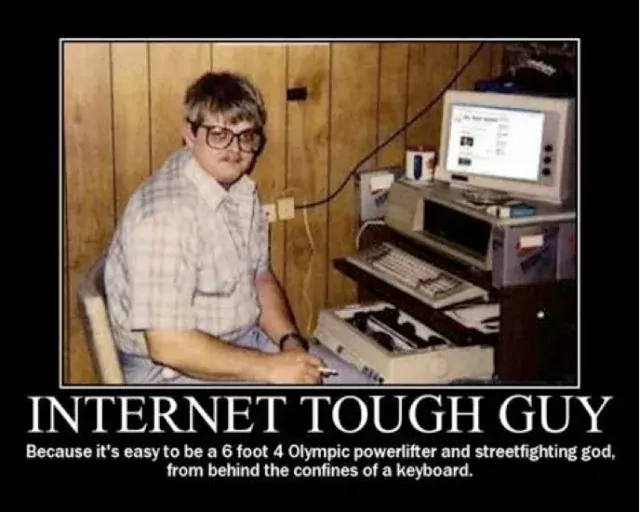From The New York Times:
If you have not kept up with the latest scandal in the world of young adult publishing, it is a doozy. It involves a debut author with a lot of buzz, lies, clumsy alibis, “review bombing,” a long and sordid confession — and, of course, Goodreads. Because whenever there is a meltdown in publishing, Goodreads, the Amazon-owned site that bills itself as “the largest site for readers and book recommendations,” is reliably at the center of it.
You might wonder if Goodreads isn’t just an enabler of scandal but the problem itself.
But first, the scandal: Internet sleuths figured out that an author named Cait Corrain, whose debut novel was scheduled for 2024, had created fake accounts on Goodreads in order to review-bomb other books — overwhelming them with negative one-star reviews. When confronted online, she concocted a fake online chat to divert blame to a nonexistent friend; when that hoax was uncovered, she confessed, citing a “complete psychological breakdown.” Her publisher and her agent dropped her; the planned publication of her novel was canceled. As often happens in these scandals, the use and abuse of Goodreads — a site whose cheery name masks a recent history of abhorrent user behavior — has left many people hurt and at least one person’s career in ruins.
Goodreads is broken. What began in 2007 as a promising tool for readers, authors, booksellers and publishers has become an unreliable, unmanageable, nearly unnavigable morass of unreliable data and unfettered ill will. Of course, the internet offers no shortage of bad data and ill will, but at its inception Goodreads promised something different: a gathering space where ardent readers could connect with writers and with one another, swapping impressions and sharing recommendations. It’s an idea that’s both obvious (the internet is great at helping like-minded people assemble) and essential (reading is a solitary activity, but there is great joy in talking through a book afterward). In fact, Goodreads is still an essential idea — so much so that it’s worth fighting to fix it.
When I joined the site in 2007, I felt I had finally found my place online. At the time, I was still using a physical notebook to keep a list of the books I’d read or wanted to read, so discovering a place to track, rate and review books felt entirely, if you’ll pardon the word, novel. After Amazon’s acquisition of it in 2013, Goodreads seemed primed to either sink or soar. While Amazon had won few fans in the book community, thanks to its predatory business practices, it is also the foremost online marketplace for books, and so a companion site dedicated to discussing books seemed an obvious and potentially beneficial complement.
. . . .
But Goodreads quickly began to languish in an awkward limbo — neither a retailer nor an inviting online salon. Still, it’s become the most popular book discussion site, by far, with a reported 125 million members as of late 2022. As book coverage and criticism have been slashed in other areas of popular media, Goodreads, by default, has taken on an outsize role in the book world’s imagination. But it’s also devolved into a place where users’ worst instincts are indulged or even encouraged.
Whether it’s the rampant practice of review-bombing books that are listed online long before publication (often targeting young adult novels that have acquired a whiff of offensiveness, some of which are ultimately pulled from publication) or the internet hecklers hounding beleaguered authors or those beleaguered authors tracking down their Goodreads hecklers and publicly shaming them, the combative culture of Goodreads is antithetical to the spirit in which it was started. My as-yet-unpublished memoir in essays already has two ratings on Goodreads, but it won’t even go out to early readers until next year. It’s become routine for publishers to warn authors that Goodreads is a site meant for readers, not for writers — which is to say, what was intended to be a forum for engagement is now a place authors enter at their peril.
In an ideal world — one in which it wasn’t owned by Amazon — Goodreads would have the functionality of a site like Letterboxd, a social network for movie fans. Letterboxd has called itself “Goodreads for movies,” but it has far surpassed that initial tag line, having figured out how to create a smooth and intuitive user experience, provide a pleasant and inviting community and earn revenue from both optional paid memberships and advertisers, including studios that produce the films being discussed. Meanwhile, publishers still rely on Goodreads to find potential readers, but targeted advertising has grown both less affordable and less effective.
So how to fix it? It starts with people: Goodreads desperately needs more human moderation to monitor the goings-on. Obviously, part of any healthy discussion is the ability to express displeasure — those one-star reviews, ideally accompanied by well-argued rationales, are sacrosanct — but Goodreads has enabled the weaponization of displeasure.
It’s not just fledgling authors being pummeled. This year, Elizabeth Gilbert, the best-selling author of “Eat, Pray, Love,” decided to withdraw a forthcoming novel, “The Snow Forest,” after Goodreads users bombarded its page with one-star reviews objecting primarily to the fact that the novel (which no one had yet read) was set in Russia and would be published at a time when Russia and Ukraine were at war. There is most likely no way to eliminate personal attacks entirely from the site — or from the internet, for that matter — but having more human beings on hand to mitigate the damage would certainly improve the experience.
Link to the rest at The New York Times
Perhaps it’s cluelessness on PG’s part, but he hasn’t been to Goodreads for centuries. He remembers going to Goodreads long ago on a handful of occasions, but has only the vaguest memories of the site. Whatever he found during those early visits didn’t motivate him to return until he read the OP. He went to check out Goodreads and discovered the same general look as it had the last time he visited when Amazon acquired it.
Goodreads was founded by a rich kid named Otis Chandler and his wife.
Goodreads Otis was the son of another Otis Chandler, the very wealthy publisher of The Los Angeles Times, the largest circulation newspaper in the state. Dad inherited the paper from an earlier Otis, AKA California royalty. Goodreads Otis got richer when he sold the site to Amazon.
Back to PG’s impressions of Goodreads – his disinterest is clearly a minority response. Goodreads has over 140 million members, maybe more, in its multitudinous forums.
If the OP is accurate (and PG has no reason to doubt its accuracy), Goodreads represeents an extraordinarily self-defeating community management failure on the part of Amazon.
Online internet forums go back to the mid-90’s and their predecessors, bulletin board systems (BBS’s) go back to the dial-up modem days of the late 1970’s.
Shortly after the first BBS’s went up, internet trolls appeared.


Operators of internet gathering places in the 80’s developed effective troll controll techniques – don’t feed the troll – not long after trolls became a thing. Failure to do so meant a bad-drives-out-the-good behavior that springs up whenever you get a large enough community of homo sapiens together and the community collapses.
The ‘Zon has enough bright people and big computers to put together a system that will boot trolls out of the community and then boot them out again when they open a new account. Ditto for an organized review-bombing campaigns.
Goodreads was problematic long before Amazon came along. It’s still a refuge for the same crowd that used to haunt Twitter, back before Elon purchased it and chased the pseudo-virtuous pearl-clutchers off.
The experience of Goodreads is like watching a live, streaming of an NFL game on Peacock or Amazon. It’s glitchy, slow, and difficult to navigate.
The standard advice for indies (the sane ones) is to create an informational listing on Goodreads that includes the names & covers of your books, clarity on their place within series, and absolutely nothing else. Whenever you put out a new book, check to see that your basic book listings are still up and correct, then go away.
Do not ever, for any reason, reply to/react to/solicit any response from any other person inhabiting the place, not even if they have posted the most inaccurate and inflammatory information about your books, your person, or your deepest beliefs. You want to be accurate about your product, and otherwise invisible. Any other attention is perilous in the extreme.